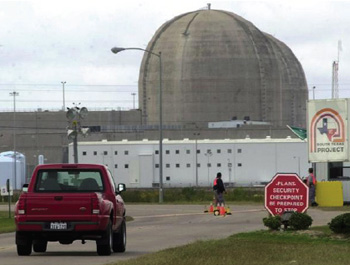Statement of Tom “Smitty” Smith:
We are shocked to hear the news that former Austin Energy and Pedernales Electric Cooperative General Manager Juan Garza has taken a job promoting nuclear power with New Jersey-based NRG Energy. While Garza rightfully acknowledges the danger climate change poses to Texas, nuclear power’s life cycle carbon footprint, exorbitant cost and extreme construction time belie the claim that nuclear is a solution to the climate crisis.
Numerous independent analyses warn that new nuclear reactors are too expensive, including consultants to the City of Austin who twice recommended the city pass on investment in the proposed South Texas Project units 3 and 4 due to high risk and cost. San Antonio’s CPS Energy has cut off investment in the project. Municipal utilities and electric cooperatives should take heed of the nuclear industry’s poor track record of delivering new reactors on time and on budget. The cost of these reactors has more than trebled in three years and when we built the first two units they were 6 times over budget and 8 years late. There are cheaper, cleaner, faster ways to meet new power needs in a carbon-constrained world.
###
By promoting cleaner energy, cleaner government, and cleaner air for all Texans, we hope to provide for a healthy place to live and prosper. We are Public Citizen Texas.



 SMITTY: TWO CITIES TOOK OPPOSITE PATHS IN SELECTING UTILITY GM
SMITTY: TWO CITIES TOOK OPPOSITE PATHS IN SELECTING UTILITY GM






